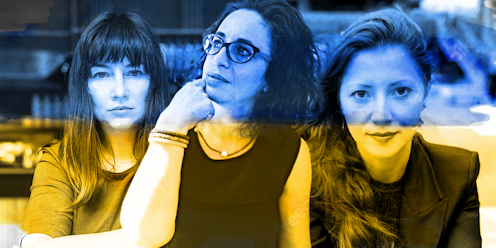Free speech or 'genocide cheering'? Ukranian authors withdraw from Adelaide Writers' Week
- Written by Jane Goodall, Emeritus Professor, Writing and Society Research Centre, Western Sydney University

This week, Ukrainian writer Maria Tumarkin announced her withdrawal from Adelaide Writers’ Week, along with fellow Ukrainians Olesya Khromeychuk[1] and Kateryna Babkina. (Tumarkin writes that she doesn’t support calls for resignations, cancellations, or boycotts of the event.)
A statement[2] posted on Tumarkin’s website quotes from letters the three Ukranian writers wrote to Writers’ Week director Louise Adler about the festival’s inclusion of Palestinian author Susan Abulhawa, who has shared a tweet from Putin: “DeNazify Ukraine”, and stated:
Zelenskyy would rather drag the world into the inferno of World War III, instead of giving up NATO ambitions. He would rather pull us all into slaughter than allow Ukraine to prosper as a neutral nation.
According to Denis Muller, writing on The Conversation[3] last week, arguments against Abulhawa’s language are “fundamentally political”.
Tumarkin’s statement[4] takes issue with this perspective:
Statements in which Zelensky (who’s Jewish) is called a Nazi, fascist, someone responsible for Russia’s invasion of Ukraine and/or WWIII are not anti-Zelensky and/or pro-Putin. They are forms of genocide cheering (a step up from genocide apology). They do not exist in the space of discourse only and do not represent something that can be classified as merely a contentious political opinion.
Read more: Are calls to cancel two Palestinian writers from Adelaide Writers' Week justified?[5]
Anti-war can mean pro-genocide
Tumarkin’s response is a small masterpiece of tone control, fluency and incisiveness. Anyone committed to the importance of writing in a complex and dangerous world should study it.

















